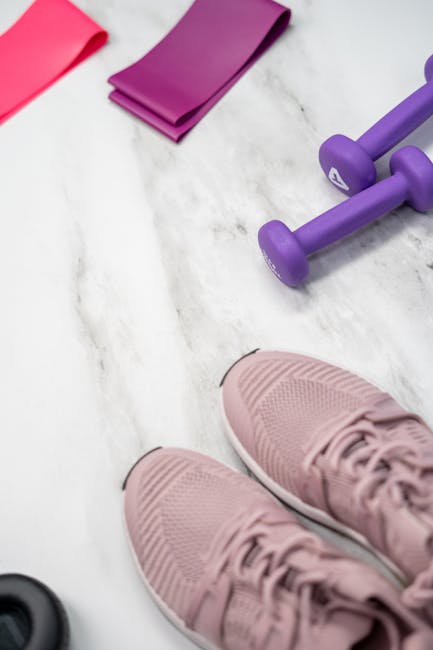Best Weight Loss Tracker Apps for 2024: Your Personalized Path to Success
Navigating the weight loss journey can feel overwhelming. The sheer volume of information, conflicting advice, and the constant pressure to achieve “perfect” results often lead to frustration and abandonment of goals. Fortunately, technology offers a powerful ally: weight loss tracker apps. These digital companions provide personalized support, insightful data, and the motivation needed to stay on track. But with a plethora of options available, choosing the right app can be challenging. This guide dives deep into the leading contenders for 2024, highlighting their strengths and weaknesses to help you find the perfect fit for your needs.
1. MyFitnessPal: A long-standing leader in the field, MyFitnessPal’s success stems from its comprehensive database of foods, making calorie tracking incredibly user-friendly. Its barcode scanner significantly speeds up the logging process, minimizing the time commitment. Beyond calorie counting, MyFitnessPal allows you to track macronutrients (protein, carbohydrates, and fats), exercise, weight, and even water intake. The app boasts a large and active community, fostering a supportive environment where users can connect, share progress, and find inspiration. However, the free version has limitations, with premium features like detailed recipe importing and advanced analytics requiring a subscription. The vast food database, while beneficial, can sometimes lead to inaccurate calorie estimations for less common or homemade dishes.
2. Lose It!: Similar to MyFitnessPal, Lose It! emphasizes calorie tracking as its core function. Its user interface is praised for its simplicity and intuitive design, making it accessible even for those less tech-savvy. The app offers personalized weight loss plans based on your goals, activity level, and dietary preferences. Lose It! also integrates with various fitness trackers and smart scales, automatically syncing your data for a seamless experience. The community aspect is less pronounced than MyFitnessPal, but the app still provides tools for connecting with friends and family for added support. While the free version is functional, the premium subscription unlocks additional features like meal planning tools and more in-depth progress reports.
3. Noom: Noom takes a more holistic approach to weight loss, focusing on behavioral change rather than solely on calorie restriction. The app incorporates psychology-based principles, providing users with coaching and educational content to understand their eating habits and develop healthier relationships with food. Noom utilizes a color-coded system to categorize foods, simplifying dietary choices and fostering mindful eating. While Noom excels in its educational and behavioral aspects, the subscription cost is significantly higher than other apps. The app’s personalized coaching is its major selling point, but the effectiveness of this approach varies among users.
4. Yazio: Yazio stands out with its robust recipe management tools. You can easily create and store your own recipes, ensuring accurate calorie and macronutrient tracking, even for complex homemade dishes. The app also offers a wide range of workout routines, integrating fitness tracking with your dietary information. Yazio provides personalized meal plans and offers various dietary options to accommodate different needs and preferences, including vegetarian, vegan, and low-carb diets. The free version of Yazio is quite limited, but the premium version offers a comprehensive suite of features, including detailed progress tracking, community features, and more advanced meal planning tools.
5. Weight Watchers: The Weight Watchers app is built upon the well-established Weight Watchers program, leveraging its decades of experience in weight management. The app incorporates the program’s signature PointsPlus system, a flexible approach to calorie counting that considers protein, fiber, and added sugars. The app provides personalized meal plans, recipes, and workout suggestions. A strong community aspect supports users with guidance and encouragement. Weight Watchers offers different subscription levels, each providing varying levels of access to features and support. However, the cost can be a substantial investment compared to other apps.
Choosing the Right App:
The best weight loss tracker app for you depends on your individual needs and preferences. Consider the following factors:
- Budget: Free versions often offer basic functionality, while premium subscriptions unlock advanced features.
- Tracking Preferences: Do you prefer a simple calorie counter or a more holistic approach that integrates behavioral modification?
- Community Features: Do you find motivation and support from interacting with others on a similar journey?
- Integration with other devices: Check if the app syncs with your fitness tracker, smart scale, or other health devices.
- User Interface: Choose an app with a user-friendly interface that you find easy to navigate.
Beyond the features, the success of any weight loss app hinges on your commitment and consistency. These apps serve as powerful tools, but lasting weight loss requires lifestyle changes, proper nutrition, regular exercise, and self-care. Select the app that best fits your style, empowers you, and helps you stay motivated on your unique path to a healthier you. Remember to consult with your doctor or a registered dietitian before making significant changes to your diet or exercise routine.





